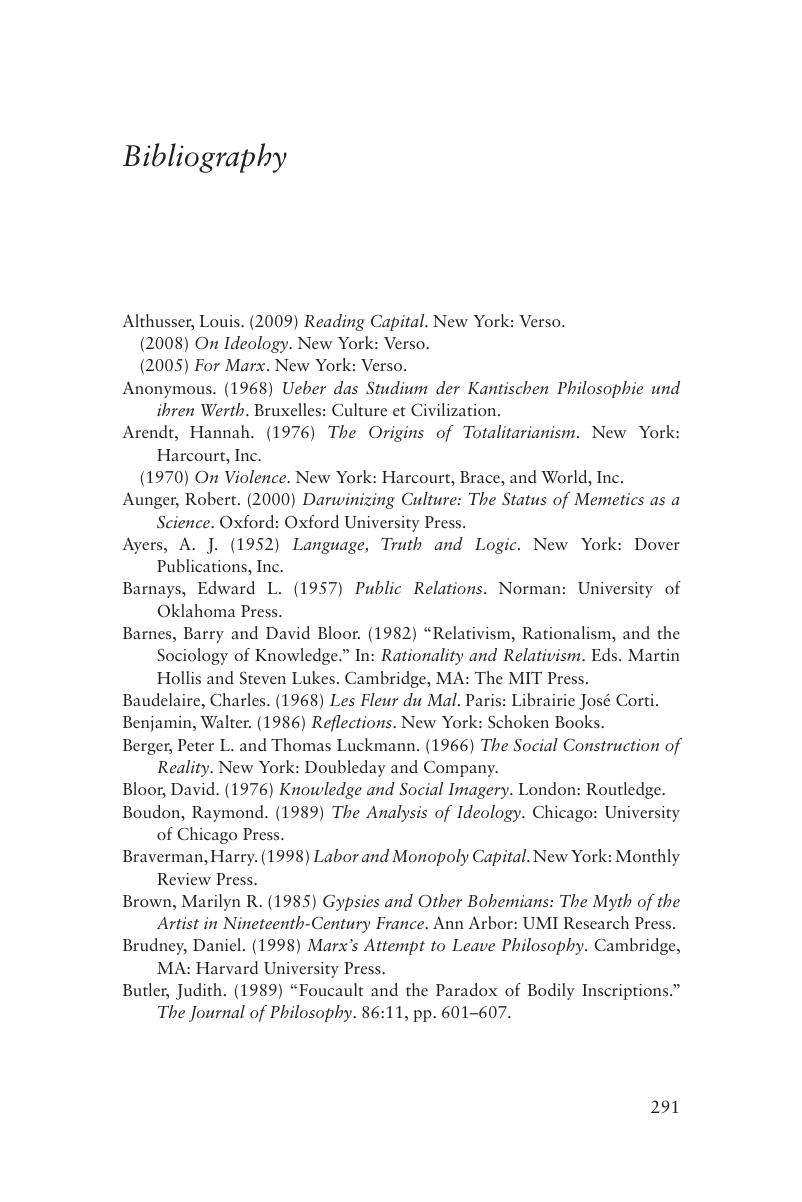Bibliography
Published online by Cambridge University Press: 17 November 2016
Summary

- Type
- Chapter
- Information
- Knowledge and IdeologyThe Epistemology of Social and Political Critique, pp. 291 - 298Publisher: Cambridge University PressPrint publication year: 2016

